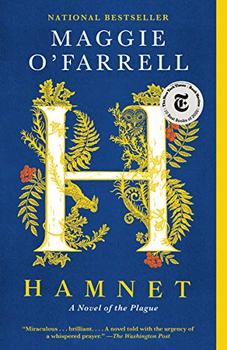Summary | Excerpt | Reviews | Beyond the book | Read-Alikes | Genres & Themes | Author Bio

A Christopher Marlowe Mystery
by Phillip DePoyChristopher Marlowe was truly a Renaissance man – not only because he was one of the most important playwrights in Elizabethan England but also because his work has enjoyed a renaissance of interest in our age (His poem, "The Passionate Shepherd to His Love," which begins "Come live with me and be my love" is certainly one of the most popular wedding recitations.) A gifted if somewhat disreputable poet and playwright, Marlowe's life lends itself readily to re-imagination, not so much because of what we know about him but rather what we don't know. He was a brilliant student at Cambridge, yes. That's easily established. But did he also work for Queen Elizabeth as a spy? He was a celebrated and groundbreaking playwright, of course. But was his death in a bar fight at age 29 a hoax, a ruse to throw off his critics and allow him to continue his clandestine spying for England? He was a huge influence on the works of Shakespeare, critics all agree. But could he have actually been Shakespeare himself?
Marlowe was a genuine man of mystery – and thus the perfect protagonist for a novel in which his shadowy associations, his ready wit, and his reputed swordsmanship are all called upon to save his own life and that of his beloved Queen of England. The first of a projected series of mystery novels featuring Marlowe, A Prisoner in Malta finds the dashing, romantic poet-playwright at his swashbuckling, wise-cracking best. And Edgar Award-winning author Phillip DePoy pulls out all the stops in the series debut, making full use of Marlowe's legendary rapier wit (and actual rapier wielding) in this frenetic and satisfying historical mystery/thriller.
The story takes advantage of a rich historical backdrop that needs little embellishment to achieve the pitch of high drama. In the 1580s, the masterminds of the so-called "Babington Plot" seek to replace the Protestant Queen Elizabeth on the English throne with her Catholic cousin, Mary Queen of Scots. Into this real-life intrigue DePoy thrusts Marlowe, a young scholar and writer beginning to make some noise among the literati in London. Recruited by English noblemen (well, "recruited" is not quite the right word – "kidnapped and coerced" is more accurate), Marlowe finds himself suddenly thrust into a world of privilege, power, and paranoia, unsure of whom to trust. When he learns of his assignment – to infiltrate a prison in Malta and rescue a double agent who has critical information about a planned assassination attempt on the Queen – he finds himself overwhelmed with uncertainty, only agreeing to the job after realizing that his training as a playwright has in fact prepared him well for the contretemps and complexity of power-broking: "'What if this were my play?' he said aloud. `Why would I have written the scenes this way?'"
Sprawling across England, Spain, Malta, and France, DePoy keeps the pacing brisk and the settings exotic. A Prisoner in Malta is populated with lots of personages whose names and reputations have been bequeathed to the annals of British history (The novel contains a helpful appendix of thumbnail biographical sketches of some of the more infamous real-life characters who figure prominently in the story).
Marlowe is such an appealing protagonist – smart, irreverent, sexy – that one is inclined to overlook the rather hackneyed writing that occasionally clots the narrative ("The sky was dark and the moon was dim. It was only nine o'clock, but the air had midnight in it.") Genre fiction has its conventions, so the reader must accept even such an unconventional character as Marlowe occasionally uttering some phrases that seem more in thrall to DePoy's need to foreshadow than the demands of the plot: "I'm fine with dying. It's absolutely the water I hate," Marlowe notes before getting on a boat. "Let me die in a knife fight, not on the water." Marlowe did, in fact, die in perhaps the most celebrated knife fight in literary history, as this somewhat clunky admission reminds the reader.
But that untimely demise is still far in the future, and the Marlowe who energizes A Prisoner in Malta is fully alive, vibrant and vituperative, full of derring-do, and daring death at every breakneck turn in the plot. Can a mere poet and playwright really defeat the conspirators of France and Spain and save the life of England's sovereign? As Marlowe flippantly notes in one of the book's climactic moments, "This life is a play, you understand?" Even a cynic like Marlowe understood the value of a happy ending, and that lesson hasn't been lost on DePoy, the author of this curtain-raiser, who seems well positioned to keep alive the Marlowe we know – as well as the Marlowe whose heroics will always remain the stuff of legend.
![]() This review
first ran in the January 20, 2016
issue of BookBrowse Recommends.
This review
first ran in the January 20, 2016
issue of BookBrowse Recommends.

If you liked A Prisoner in Malta, try these:

by Qiu Xiaolong
Published 2022
The legendary Judge Dee Renjie investigates a high-profile murder case in this intriguing companion novel to Inspector Chen and the Private Kitchen Murder set in seventh-century China.

by Maggie O'Farrell
Published 2021
"Of all the stories that argue and speculate about Shakespeare's life … here is a novel … so gorgeously written that it transports you." —The Boston Globe
Your guide toexceptional books
BookBrowse seeks out and recommends the best in contemporary fiction and nonfiction—books that not only engage and entertain but also deepen our understanding of ourselves and the world around us.